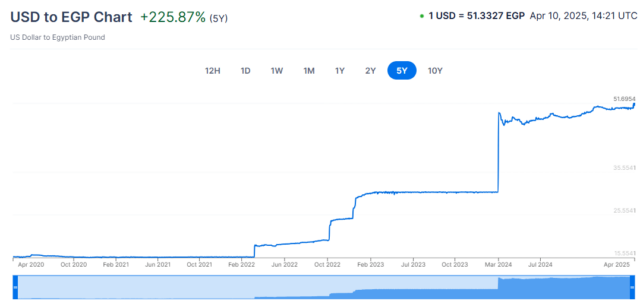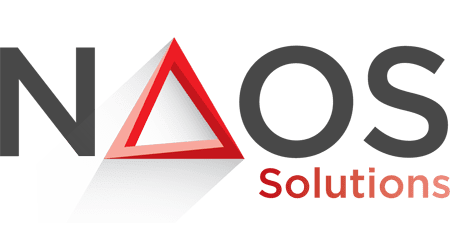HR Outsourcing in Egypt is gaining ground as a strategic lever for business resilience. Inflation, currency fluctuations, and a shifting labor market are redefining the cost of doing business, and Egyptian decision-makers are actively seeking smarter ways to stay agile without compromising on quality or compliance.

This article is for you if you’re an HR leader, CFO, COO, or founder facing unpredictable market conditions. We’ll show you how HR outsourcing (HRO) can help reduce fixed overheads, improve compliance, and keep your talent strategy on track—even in turbulent times.
By the end, you’ll see how the right HRO partner can help you build a leaner, more responsive organization ready to adapt and grow regardless of the economic climate.
ECONOMIC CHALLENGES FACING EGYPTIAN BUSINESSES IN 2025
Egyptian businesses are no strangers to economic turbulence, but 2025 presents a unique test of resilience with numerous challenges.
High Inflation Rates
In 2025, Egypt’s inflation rate surged to 21.19%, capping nearly three consecutive years of relentless price hikes and economic strain. According to CAPMAS (Central Agency for Public Mobilization and Statistics), the headline inflation rate hovered above 20% for most of 2023 and 2024, driven primarily by food prices, fuel costs, and import-dependent sectors. This isn’t just a statistic for businesses operating in Egypt — it’s a pressure cooker.
Inflation steadily erodes purchasing power. Households are forced to stretch every pound, delaying discretionary spending and demanding price sensitivity from even essential purchases. This consumer shift immediately strains businesses, which must now juggle increasing operational costs with shrinking demand.
Wage pressures intensify the issue. Employees expect salary adjustments to keep pace with living costs, but most companies can’t afford unsustainable payroll inflation. Many are stuck in a bind: risk losing talent to competitors or migration or stretch budgets thin just to maintain morale.

Take, for instance, a local manufacturing firm sourcing imported materials. Global supply chain costs have increased, and the weakening Egyptian pound makes every shipment more expensive. The company must decide whether to absorb these costs — shrinking already pressured margins — or pass them on to customers, who may already struggle to make ends meet.
This creates a vicious cycle: reduced sales, falling profitability, and a need to delay strategic investments just to stay afloat. Business leaders are left constantly revising forecasts, tightening liquidity, and treading carefully in an economy where certainty is a luxury.
In this climate, flexibility is key — and that’s where HR outsourcing offers real value. By reducing fixed costs and enabling more agile workforce models, HRO helps companies weather inflationary pressure without compromising their long-term strategy.
Currency Volatility
Currency volatility in Egypt has reached historic levels, and for businesses that rely on imports, the stakes couldn’t be higher. As of April 2025, the Egyptian pound stands at 51.33 per U.S. dollar, up from around 15.7 EGP/USD in early 2020 — a staggering 225% devaluation in just five years, as shown by the Central Bank of Egypt data.
This kind of depreciation comes in sharp waves that upend business planning overnight. Companies that import raw materials, equipment, or even software services are now paying more than triple what they paid in USD terms just a few years ago.

However, not all businesses are affected equally. Exporters of goods or services may benefit from a weaker pound, making their offerings more cost-competitive on international markets and improving foreign-currency earnings when converted back to EGP. This shift could open doors for more substantial profit margins and global market expansion for sectors like agriculture, textiles, IT services, and tourism.
But it’s a different story for companies focused solely on the domestic market. The rising cost of imports and weakened consumer purchasing power mean shrinking margins and growing operational risk. These businesses face difficult choices — absorb higher costs or pass them on to consumers already stretched thin.
This volatility impacts more than procurement. It affects payroll, supplier contracts, financial forecasting, and HR planning. Hiring expatriates or dollar-pegged talent becomes increasingly expensive. Adjusting local salaries to reflect cost-of-living changes gets harder when your cost base is unpredictable.
In this environment, HR outsourcing in Egypt becomes a strategic stabilizer. Trusted HRO providers offer cost-predictable service packages in local currency, helping businesses manage payroll, contracts, and compliance without getting caught in the chaos of exchange rate fluctuation.
Labor Market Dynamics
Egypt’s labor market is undergoing significant transformations, presenting challenges for businesses striving to attract and retain top talent. A notable concern is the declining workforce participation rate.
This decline is particularly pronounced among women. Despite comprising nearly half of Egypt’s population, women’s participation in the labor force remains alarmingly low. The 2024 Global Gender Gap Report highlights that women’s participation stands at approximately 15%, in stark contrast to 69.2% for men. Cultural norms, limited childcare options, and concerns about workplace safety contribute to this disparity.
Economic uncertainties have further influenced labor market behaviors. Many professionals seek opportunities abroad or opt for freelance and gig work, leading to a talent drain in critical sectors. The technology industry, for instance, faces a pronounced shortage of skilled developers and cybersecurity experts, exacerbated by talent migration and shifts toward more flexible work arrangements.

The Egyptian government has implemented regulatory measures to enhance labor market conditions in response to these challenges. Notably, the minimum wage has been increased to support workers amid rising living costs. As of July 2025, the minimum monthly salary for public sector workers is set to rise to 7,000 Egyptian pounds (approximately $138), aligning with the private sector’s minimum wage established earlier in the year. This adjustment is part of a broader social protection initiative to alleviate economic pressures on employees.
While these measures aim to improve worker welfare, they also present businesses with increased operational costs. Companies must navigate these financial implications while striving to attract and retain talent in a competitive and evolving labor market landscape.
HOW HR OUTSOURCING IN EGYPT ENHANCES RESILIENCE
In uncertain times, resilience isn’t just about surviving — it’s about sustaining operations, adapting to change, and bouncing back stronger from disruptions. For Egyptian businesses facing inflation, regulatory shifts, and talent shortages, organizational resilience means having the structures to respond quickly, stay compliant, and maintain workforce continuity without overextending internal resources.
That’s where HR outsourcing (HRO) plays a critical role — not just as a support function but as a strategic enabler of long-term stability. Here’s how:

Access to Specialized Expertise
Hiring top talent is no easy feat. You could spend months recruiting and training a new hire, only to realize later that your business needs have shifted, or worse, that they weren’t the right fit.
Fortunately, HR outsourcing eases the burden for your business. You can access expert knowledge on demand without committing to full-time hires for specialized roles.
Need an HR strategist to navigate compliance updates? A payroll specialist to handle multi-country operations? A recruitment expert to fill a niche role? Outsourcing gives you access to top-tier professionals without the overhead or long-term risks.
It’s flexibility without compromise: expertise when you need it, agility when you don’t. This ensures you’re always playing smart.
Scalability In Workforce Management
Business growth is filled with unexpected turns. The demand might surge one quarter, and you’ll need to scale up quickly. The next quarter, the market slows down, and an oversized workforce becomes a financial burden.
Managing this ebb and flow with a rigid in-house HR structure could be difficult. However, HR outsourcing removes these constraints. It lets businesses scale their workforce up or down as market conditions shift.
Whether you need to ramp up hiring for a seasonal spike or adjust payroll structures as operations evolve? HRO provides the flexibility to do so. You won’t have to deal with permanent contracts or reactive decision-making hassles.
HR outsourcing keeps you equipped to meet demand, no matter how unpredictable it gets.

Mitigation of Compliance Risks
Regulations tend to change and sometimes catch businesses off guard. One policy shift and a company deals with penalties or legal headaches.
HR outsourcing helps businesses stay ahead of these challenges. They keep the payroll, contracts, employee benefits, and labor laws in check. This way, you won’t struggle to interpret new mandates or risk costly missteps.
Instead, you can rely on HR experts specializing in complex compliance issues to keep you on solid ground.
FINANCIAL AND OPERATIONAL BENEFITS OF HRO FOR EGYPTIAN COMPANIES
Every business wants to cut costs without cutting corners. But managing growth alongside efficiency can be tricky. However, HR outsourcing (HRO) provides a smarter way to operate, as it offloads administrative burdens to specialized providers. Here’s how:
Cost Predictability and Reduction In Fixed Overheads
Traditional in-house HR comes with a long list of fixed costs that don’t budge, even when business slows down. This results in a rigid expense structure that eats into cash flow and limits agility.
HR outsourcing resolves that issue. Businesses pay only for what they need, from payroll processing to compliance management. This changes HR from a fixed overhead into a flexible expense.
You’d be able to run your operations with predictable, controlled spending. And that’s financial efficiency done right!
Enhanced Focus on Core Business Activities
Every hour spent on employee paperwork or compliance is not spent on innovation. Yet, for many businesses, HR admin becomes a never-ending to-do list that drains energy and resources.
HR outsourcing clears that burden. By delegating administrative responsibilities, companies free up leadership to focus on what moves the needle.
Think of it like this: A fast-growing tech startup doesn’t need to be an expert in employment contracts. All it needs is to build better products. Likewise, a retail chain shouldn’t lose sleep over compliance filings. It should instead focus on customer engagement.
HRO ensures businesses do what they do best without HR slowing them down.

Improved Employee Satisfaction
Great business strategies mean nothing if employees feel stuck in bureaucratic chaos.
Imagine an employee waiting weeks for a payroll issue to be resolved or navigating unclear benefits policies. Their frustration is bound to grow, leading to a hit in productivity.
HR outsourcing changes that. Dedicated HR professionals who handle payroll accuracy and employee queries allow companies to create a smoother, more responsive work environment.
Employees get timely answers and clear career development pathways without the inefficiencies of an overstretched internal HR team.
When HR functions run smoothly, employees will likely stay loyal and productive. In a competitive job market, that’s the edge businesses need to retain top talent.
CONSIDERATIONS FOR SELECTING AN HRO PARTNER
Selecting an HRO provider isn’t a one-size-fits-all decision. Businesses need a partner that aligns with their industry and understands local labor laws.
A strong HRO partner becomes an extension of your team, handling everything from payroll and benefits to compliance and workforce planning. But how do you separate the best from the rest? By knowing precisely what to look for.
Expertise In Local Laws and Regulations
Consider expanding operations only to realize months later that your employment contracts aren’t fully compliant with Egypt’s latest labor reforms. That’s a crisis waiting to happen.
An experienced HRO partner prevents these blind spots. They stay abreast of the latest local laws related to payroll regulations and tax obligations, keeping businesses protected and ahead of regulatory changes.
Technological Capabilities
According to Statista, Egypt is undergoing massive digital transformations, including developing IoT, 5G, cloud computing, data analytics, and AI.
So, if an HRO provider still relies on manual processes and outdated spreadsheets, they’ll make things challenging for you.
A top-tier HRO partner brings advanced HR tech, from cloud-based payroll systems to AI-driven analytics. These tools reduce administrative overhead.
Besides improving efficiency, it will also prevent payroll miscalculations and compliance oversights, which is a plus.
Regulation and Track Record in the Egyptian Market
A reputable provider understands local labor codes, tax regulations, social insurance requirements, and industry-specific compliance details. More importantly, they have a history of keeping businesses compliant and avoiding legal pitfalls.
So, opt for a well-established HRO partner with a strong regulatory background to ensure your workforce management is in expert hands.
CONCLUSION
Egyptian businesses often compete against uncertainty. Inflation bites into budgets, and talent shortages make hiring an uphill battle.
That’s where HR outsourcing proves its worth. It helps you gain agility and have the right people by your side.
You can scale up or down as market conditions shift and maintain compliance without the constant headache of legal updates. Companies that outsource HR adapt quickly and outmaneuver competitors stuck in rigid structures.
In a time when stability feels like a luxury, the right HR partner makes it a reality. NAOS Solutions helps Egyptian businesses stay compliant and focus on growth. Let’s discuss how our HRO services can build resilience into your workforce.

